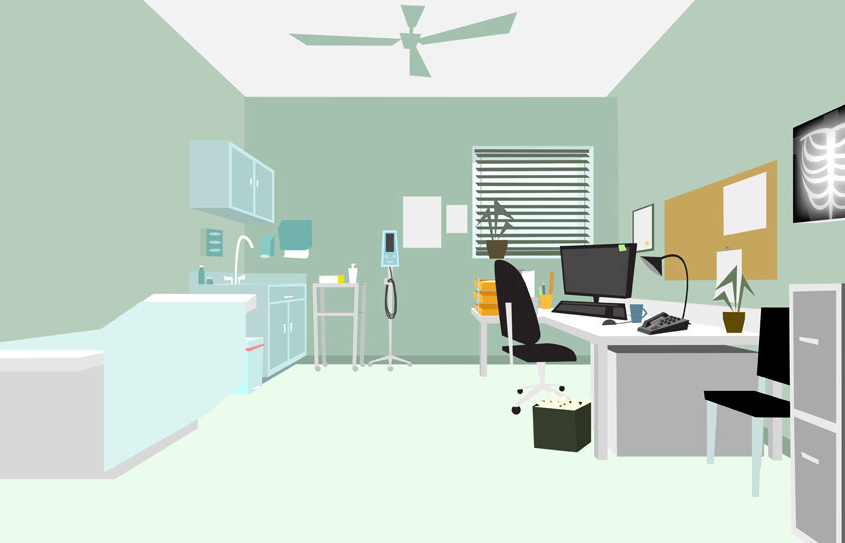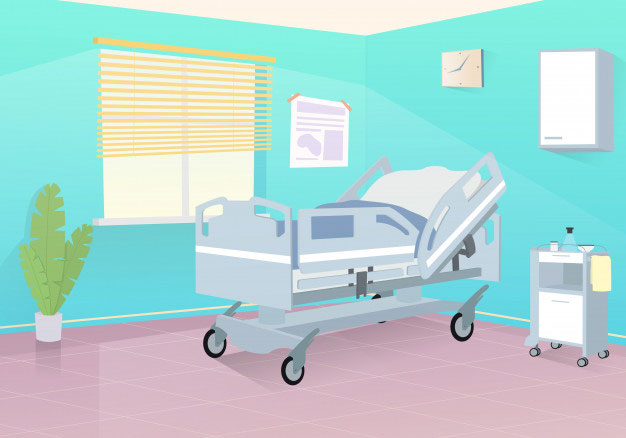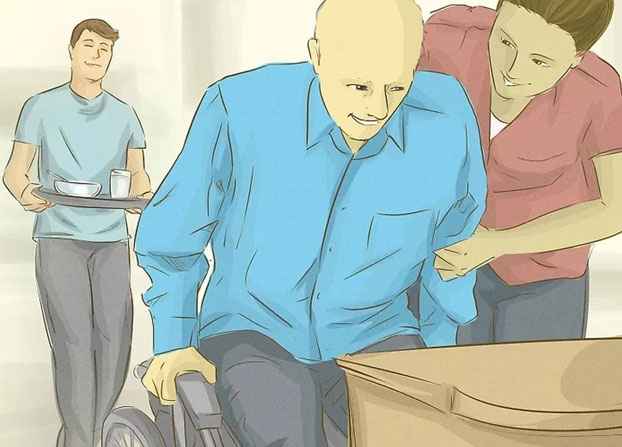What are the settings for palliative and supportive care?
Provision of palliative and supportive care should not be limited to hospital; rather it is preferred to be available every where that a cancer patient and the caregivers may feel comfortable. Hence MACSA tends to provide the palliative and supportive care in various settings including Home Care, Hospital, Outpatient Clinic and Online. In general, MACSA offers its services in the following settings.
The outpatient palliative and supportive care clinic
All outpatient services of supportive and palliative care are provided in the “outpatient palliative and supportive care clinic”. Part of this clinic operates in the hospital settings focusing on specialized palliative care services (specifically control of physical symptoms) called “Palliative Medicine Clinic”.
The other part of this clinic, operates independent from the hospital, focusing on rehabilitation services. The patient may experience various physical, psychological, social, or spiritual problems before, during or after treatment. This also might be case when the patient is partially or completely cured. The onset of psychological, social, and spiritual problems is not limited to the patient and may also affect caregivers and the family members. The so called “Cancer Rehabilitation Clinic” provides a wide range of services, generally planned for this group.
Hospital Palliative Care ward
A cancer patients may experience severe physical conditions throughout the course of disease. In such circumstances, constant monitoring and active provision of palliative care services (e.g., pain control) can best be fulfilled in the hospital environment.
The inpatient palliative care services are mainly aimed to control critical phase of the disease, so that the patient symptoms are relived in the shortest possible time and he or she can return to home at which can continue to receive palliative care services in a relaxed environment.
Home based palliative services covers a wide range of services including nursing services, general and specialized medical visits, psychology counseling, spiritual counselling, rehabilitation services, social worker home visit, etc.
Patients who prefer to receive specialized services at the relaxed environment of home rather than the hospital, those who have problem visiting the outpatient clinic, or patients who their disease is in an advanced stage can receive supportive and palliative care at home.
Call Center
Limited access of the patients, caregivers and the public to reliable scientific information about cancer and inconsistencies in available information cause confusion and anxiety in populace. This lack of information may provide the opportunity for quackery. as well, for many patients and families the access to therapists and specialists throughout the course of disease is limited.
Contacting the “MACSA Call Center” is an instant path to palliative and supportive care services. Experts at the Call Center include physicians, nurses, and patient care technicians that provide expert telephone advice and answer your questions about illness and patient care 24 hours a day, 7 days a week. MACSA call center also performs the surveillance of the patients who have entered the home care program. call center clinicians contacts the patient on a routine basis -that is planned based on their assessments of the patient’s condition- to get information of the latest changes in the patient’s condition and needs. The call center is connected to an electronic patient information system that provides your information to the physician or operator in charge of your guidance so that he or she can provide the counseling based on your personal status.
Hospice (Mehr House)
MACSA seeks to launch the country’s first hospice in collaboration with philanthropists and the health system. Hospice is a kind of care center where people who are nearing the end of their lives are cared for. Hospice services are provided by a specialized team, participating the patient’s family. Hospice has a special focus on controlling the symptoms and complications of the disease, addressing the patient’s spiritual concerns, responding to the emotional needs, and creating a sense of security and peace. Being in a hospice helps the patient to live to the last moment of life.
Volunteers and advocates network
Being diagnosed with cancer virtually affects every aspect of the life of the patient and his or her family. These changes may cause the development of a new set of needs, related to the treatment or daily normal tasks like shopping and transportation. They may also face difficulties to achieve their social benefits and rights.
The volunteers and advocates network aims to utilize social capacities to meet patient’s needs other than the treatment. This consists of a network of qualified volunteers who are informed of the patient’s needs through a unified system under the close supervision of the network administrator.
At MACSA, the Volunteers and advocates network is planning to be launch in collaboration with volunteers, philanthropists, and social organizations in the near future.






